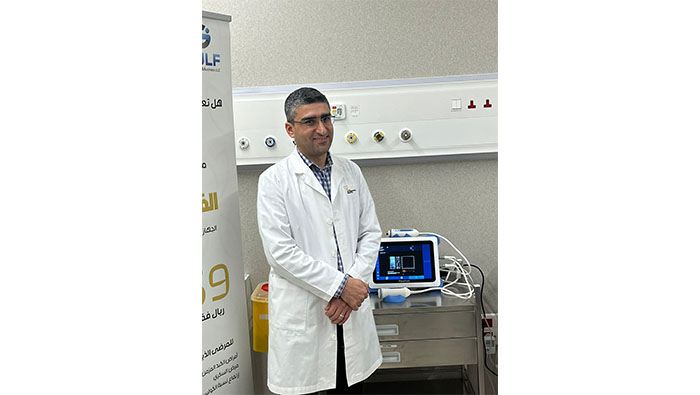
Muscat: Oman International Hospital has launched the state-of-the-art FibroScan service, a modern non-invasive technology for detecting scarring (fibrosis) and fat deposition (steatosis) in patients with liver disease.
Chronic liver disease, especially fatty liver disease, is among the most significant health challenges facing modern societies.
Fatty liver disease is rapidly becoming one of the most common global health problems largely caused by the global pandemic of obesity and diabetes.
It is expected to be the most common cause for decompensated cirrhosis (end stage liver disease) and liver cancer within the next decade, surpassing chronic viral hepatitis and alcoholic liver disease as indications for liver transplantation.
Dr. Abdulwahhab Shaheed Abdullah, a senior specialist in gastroenterology and hepatology in Oman International Hospital, stated that the importance of the FibroScan device lies in its ability to provide a quick, point-of-care, painless, non-invasive method for assessing liver health.
He emphasised that early diagnosis of the usually asymptomatic fatty liver disease is crucial to avoid its potentially serious long-term complications.
Regular follow up with non-invasive methods such as the FibroScan, as recommended by widely accepted professional guidelines, have the potential to reduce the overall burden of liver disease for both the patients and the healthcare system.
In Addition, Marcelo Pereira, CEO of Oman International Hospital, stated that in line with their commitment to providing the highest levels of healthcare, adopting the latest technologies to improve service quality, and enhancing patient safety, they provided the FibroScan test as an important addition to the liver disease clinic services offered in Oman International Hospital, as it provides a quick and accurate assessment of liver health without the need for expensive and painful tests such as liver biopsy.
The use of modern non-invasive technology in the diagnostic process enhances patients’ acceptance and improves adherence to medical follow up which can result in better health outcomes, making the FibroScan device a valuable investment for the hospital.